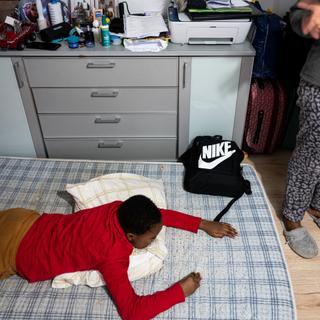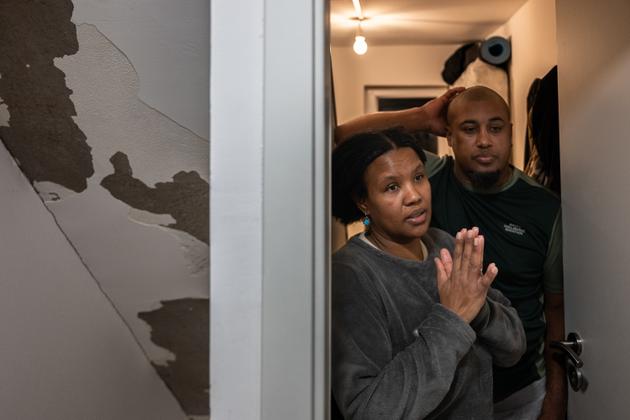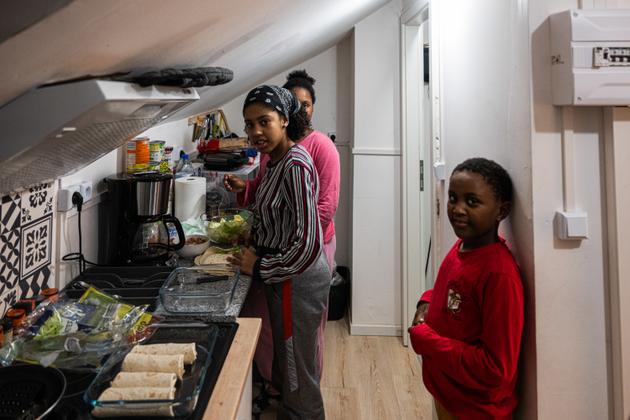


No window, six in a room: Abusive landlords' schemes near the France-Luxembourg border
FeatureWorkers from various countries, attracted by Luxembourg's salaries, are offered tiny apartments on the French side of the border, where rents are significantly cheaper. Elected officials are at a loss on how to crack down on the abusive landlords.
The houses have more letterboxes than windows. In Moselle, near France's border with Luxembourg, one of them has been divided into five studios of 30 square meters each. The white house, which would be ideal for one family, two at most, is home to five, with two studios on the first floor, another two on the second, and one in what was, until recently, an attic.
Maria and Manuel Da Luz, 45 and 43, live in this attic. It has a bedroom, a corridor kitchen, a shower and a toilet, all cramped under the slope of the roof. It would be a tight fight if there were only two of them, but the couple, who arrived from Cape Verde in September 2023, live there with their four children aged 15, 14, 13 and 8. Mattresses are stacked in a corner of the room during the day, and in the evening they are laid out on the floor. The children sleep at the foot of the parents' double bed.
The house isn't a shack but everything seems to have been hastily cobbled together. There are doors without frames, cracks in the walls and expanding foam, and precarious electrical installation. The beams are covered in coarse gray tape to block openings in the wood and "keep the rats out," said Maria Da Luz, the only French speaker in this house whose occupants are all Portuguese or Cape Verdean. "We spoke to the owner about it, and he told us we were already lucky to be here, that we'd have found worse elsewhere." The rent is €900 per month, the same price as the four other studios. "It's a bit expensive."


Like their neighbors, Maria and Manuel Da Luz work in Luxembourg. She is a cleaner and her husband works on building sites. They make around €2,500 a month. How many of these houses in the region have been divided into tiny rooms, where essential workers squeeze together in deplorable, sometimes illegal, conditions? "It's a trend that's very difficult to quantify, but we can see that it's accelerating," said Viviane Fattorelli, the left-wing independent mayor of the region, Audun-le-Tiche.
Less than 10 years in the making
There was a time when Luxembourgers came to work in the steel industry of France's Lorraine region. Now it's the other way round – six out of 10 working people in Audun-le-Tiche are cross-border commuters – and the natives are joined by workers from all over the world attracted by the grand duchy's booming economy and high wages. For construction, cleaning, and catering workers, housing in Luxembourg is unthinkably expensive, so they live on the French side where there's little land left to build on.
You have 73.17% of this article left to read. The rest is for subscribers only.
